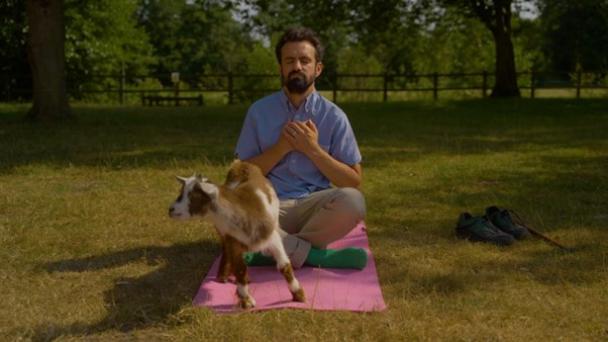As a Guardian video producer I’m always on the lookout for subjects that are interesting, increasing, and that might provide strong visuals for an audience. I’d been looking to tackle the thriving wellness industry for a while, but hadn’t yet found an angle that felt suitably fresh and worthwhile. Separately, some research came out of London’s Crick institute earlier this year, suggesting that the global rise in autoimmune conditions over the past 40 or so years might be - at least in part - thanks to the spread of the so-called ‘western lifestyle’.
I felt there might be mileage in putting these two parallel subjects together, since so many people, unable to find a cure through conventional medicine, turn their focus (perhaps even desperately) outside the mainstream for ways to improve their health. Clearly these topics weren’t going away, and I felt there might be better ways the two worlds could sit side by side, hopefully avoiding some of the well-publicised dangers lurking in pseudoscientific promises.
As someone with a vested interest (I have multiple sclerosis myself), it felt logical to turn this into a more self-reflective journey than I would usually aim to go on. I caveat this point with the acknowledgement that the wellness industry is targeted more at women, though the focus on men is also growing. There is of course great benefit to making videos about which you have personal experience. It’s not always appropriate of course, as it can be hard to retain objectivity, but the benefits are hopefully an authentic reflection of what you are presenting - and a more immersive experience for the viewer.
From there, with a rough idea of what I was trying to do, I was fortunate to have the flexibility to approach the series in a linear fashion. I knew I wanted to speak with Dr James Lee at the Crick, and try a range of wellness therapies, but outside that the team had the space to shape the series as we saw fit.
It was a great pleasure to be able to follow my nose a little, to respond to the pointers passed my way and react to areas of interest as they revealed themselves. We weren’t planning to cover the role of diet in this series, yet most of our early interviewees all mentioned it, so despite it being a fairly well-trodden subject, we felt it valuable to include it as part of the journey.
I was also keen to speak to other people with MS who might have more knowledge of complementary and alternative therapies than myself, and who would be able to broaden the scope of the series - since I am just one person - and as we know MS is such a varied condition.
With the help of organisations like the MS Trust I was able to make contact with a number of people who had experience of wellness treatments - some of whom feature across the series. Others kindly gave their thoughts over the telephone and thus contributed in more indirect ways to the final series of videos.
I also contacted the athlete Lina Neilsen, who had recently gone public with her own diagnosis, in the hope she would be keen to continue spreading awareness and telling her own story. She was very generous with her time and thoughts, and gave the series a sprinkling of stardust to boot!
Ultimately, the number of episodes grew from an initial three to the five we will publish. I hope you will join me for the journey, and find the series of interest (even if you don’t agree with my conclusions!) Thank you.
Richard Sprenger is a journalist with MS, on a journey into the heart of the wellness industry to find alternative ways to manage his condition outside conventional healthcare. In a series of films for the Guardian, Richard invites us to investigate everything from gut health to goat yoga, to find out what might help him manage his MS.
You can find the Guardian film series referenced in this article here: A sceptic's guide to wellness






